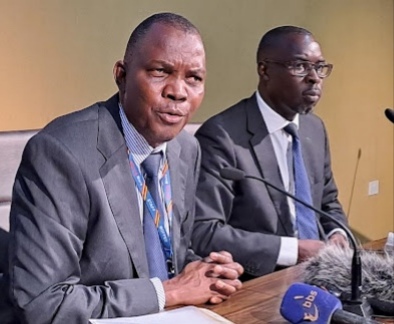Uganda has been commended by the Oslo-based Extractive Industries Transparency Initiative (EITI) Board for open policy on oil and Minerals.
The Extractive Industries Transparency Initiative (EITI) is a global initiative that promotes the open and accountable management of oil, gas and mineral resources. Its implementation is overseen by the EITI International Board chaired by Rt Hon Helen Clark. The Board represents extractive companies, investors, international civil society organizations and supporting country governments.
Uganda’s validation score published by the EITI Board on May 21 was based on the implementation of the 2019 EITI standard. According to the EITI validation classification, a score of 0 – 49 is categorised as “low”; 50 – 69 is “fairly low,” 70 – 84 is ranked as “moderate,” 85 – 92 is classified as high, while 93 – 100 is very high.
EITI is a public-private partnership designed to help resource-rich countries avoid corruption in the management of extractive industry revenues. EITI believes the fact that oil gas and minerals resources belong to the people and therefore they should benefit from their extraction and sale.
Uganda Multi-Stakeholder Group (MSG) is hosted by the Ministry of Finance and chaired by Moses Kaggwa, Director of Economic Affairs; Ministry of Finance, Planning and Economic Development. Scholars and policymakers now recognize good governance in the management of natural resources as key to ensuring that countries can prevent and escape the resource curse and translate resource wealth into inclusive economic development.
The Extractive Industries Transparency Initiative (EITI) supports improved governance in resource-rich countries through the verification and full publication of company payments and government revenues from oil, gas, and mining.
According to Oslo group, Uganda’s National Oil and Gas Policy, of 2008, recognizes the role civil society organizations can play through advocacy, mobilization, and dialogue with communities.
“Civil Society Organizations are expected to hold accountable the different stakeholders concerning oil and gas issues and participate in getting the voices of the poor into designing, monitoring, and implementing programs in the oil and gas sector,” officials said.
Uganda joined EITI in August 2020. Uganda has since established a functioning Uganda EITI Secretariat under the Ministry of Finance.
Uganda has achieved a moderate score in implementing the 2019 EITI Standard (78.5 points). The overall score reflects an average of the three component scores on Stakeholder engagement, Transparency, and Outcomes and impact. Uganda has made strides in improving transparency and accountability in its oil and mining sector by establishing a robust multi-stakeholder platform and undertaking reforms to its Minerals Act. The Board commends Uganda EITI (UGEITI) for its outreach efforts, including publishing summary reports and dissemination activities in extractives regions. Coverage in the press, radio and TV programmes are the result of the implementation of its communications strategy and outreach plan and active use of the UGEITI website.
Uganda’s extractives sector is rapidly transforming from small scale to larhe scale industry. This shift has created a number of challenges, including inadequate protection for miners and their communities.



